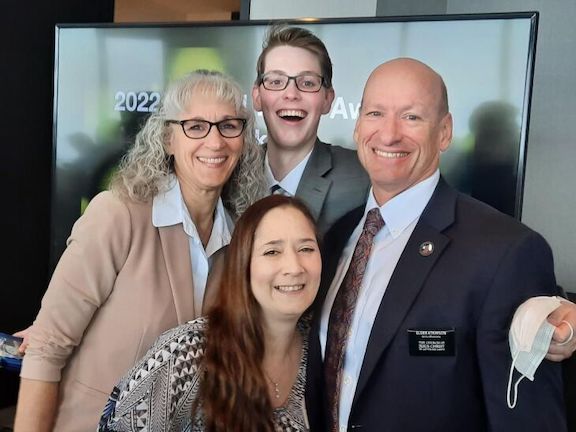Service Missionaries
Service Missionaries are those missionaries that serve non-proselyting missions by fulfilling humanitarian, educational, leadership training, medical, or technical missions. The opportunities are varied and often the needs are critical.[1]
Full-time Service Missionaries are called and sent out to serve like full-time proselyting missionaries. They go over the whole world helping members of the Church and non-members. Part-time service can be as little as eight hours a week and the missionary can serve from home.
Senior Service Missionaries
Service Missionaries are much in demand and there can never be too many. The Church encourages all retired couples to serve full- or part-time missions.
Since about 1979, the program has provided a growing and varied number of opportunities for members of the Church of Jesus Christ to serve. This important missionary workforce helps many church departments and operations provide needed products and services.
During the April 2011 general conference of the Church of Jesus Christ, it was announced that 20,813 church-service missionaries (as they were then called) served during 2010 – the first time these missionaries have been included in the church's official year-end statistical report. There are a number of "seasonal" assignments that only last six months at a time, and these were included in the statistics. During 2010, those 20,813 missionaries donated more than 8.8 million hours of service.
Church-service missions started in the Wasatch Front of Utah — an area nestled against the Wasatch Mountains that includes the Salt Lake and Utah Valleys. Senior couples who had to stay close to home, especially for medical or financial reasons, wanted to serve, but they could not launch out on full-time missions. They were able to serve part-time from home. Currently, these callings may last for 6 to 24 months. It used to be that senior missionaries heading for service abroad would have to commit to at least 18 months of service, but to encourage more to serve, those who can pay their own airfare may go abroad and perform service missions for 6 months or more.
The list of assignment possibilities for all church-service missionaries is long and extraordinarily broad in scope. Almost every department of the church utilizes service missionaries in one way or another – fully 80 percent of the staff providing welfare services are service missionaries. Some possibilities for service missionary assignments include, but are not limited to, employment resource centers; Bishops' Storehouses, girls camps and recreational properties, seminaries and institutes, family history, ranches and farms, facilities management, FamilySearch support, information technology, Church headquarters offices, humanitarian services, inner-city missions, member location, addiction recovery programs, employment counseling, language training, member and leader support, military relations, visitors' centers and historic sites, records preservation, welfare and self-reliance services, mission offices, and legal support.
Requirements for service missionaries include the following: be temple worthy; be able to serve an average of eight hours per week for at least six months; be physically, mentally, and emotionally able to perform the specified duties; be capable of supporting yourself financially; be at least 19 for men and 21 for women (no maximum age limit); mission assignment is endorsed by both the bishop and stake president. [2]
Young Service Missionaries
A growing segment of the service missionary program is young adults who aren't able to serve in full-time proselyting missionary service.
Worthy young men ages 18-25 may serve a service mission for six to 24 months, and young women ages 19-29 may serve a service mission for six to 18 months, as close to full time as their capability and circumstances allow. These missionaries live at home and serve locally, and each young man or young woman is provided a customized mission experience tailored to his or her talents, skills, and gifts.
In the April 2022 general conference, President Russell M. Nelson spoke about missionary service and included senior missionaries:
- Dear young friends, you are each vital to the Lord. He has held you in reserve until now to help gather Israel. Your decision to serve a mission, whether a proselyting or a service mission, will bless you and many others. We also welcome senior couples to serve when their circumstances permit. Their efforts are simply irreplaceable.
- All missionaries teach and testify of the Savior. The spiritual darkness in the world makes the light of Jesus Christ needed more than ever. Everyone deserves the chance to know about the restored gospel of Jesus Christ. Every person deserves to know where they can find the hope and peace that “[pass] all understanding.”[3]
Young service missionaries apply in the same way as a full-time missionary candidate do and their calls come from the prophet. Missionaries who are not able to complete a proselyting mission due to due to mental, physical, or emotional health reasons may be able to transfer to a service mission for the remainder of their mission.[4]
Service missionaries commonly serve in multiple assignments for approved charitable organizations, temples, Church operations, and stake-assigned service opportunities.
Beginning in January 2024, all young service missionaries were integrated into teaching missions under the leadership of mission presidents. Elder Marcus B. Nash of the Presidency of the Seventy, and served as executive director of the Missionary Department, said, “Both service missionaries and teaching missionaries are important to the call to gather Israel. As the teaching and service missionaries fulfill their respective missionary roles under the loving direction of their mission presidents, missionary work will be enhanced, and the missionaries — both service and teaching — will be uplifted and blessed through their association.”
“All missionaries called by the Prophet — regardless of their assignment — are representatives of Jesus Christ and on His errand to bless and serve God’s children,” said Elder Nash. “It is one great work, and the missionaries are pivotal to it.”[5]
Young service missionaries also began attending zone conferences, participating in interviews and other activities.
Service mission leader couples continue to provide day-to-day assistance, love and care for young service missionaries.
Because young service missionaries live at home, the local stake president and bishop continue to function as the service missionaries’ ecclesiastical leaders. The families of young service missionaries also continue to be responsible for providing emotional and physical care for each missionary.[6]

